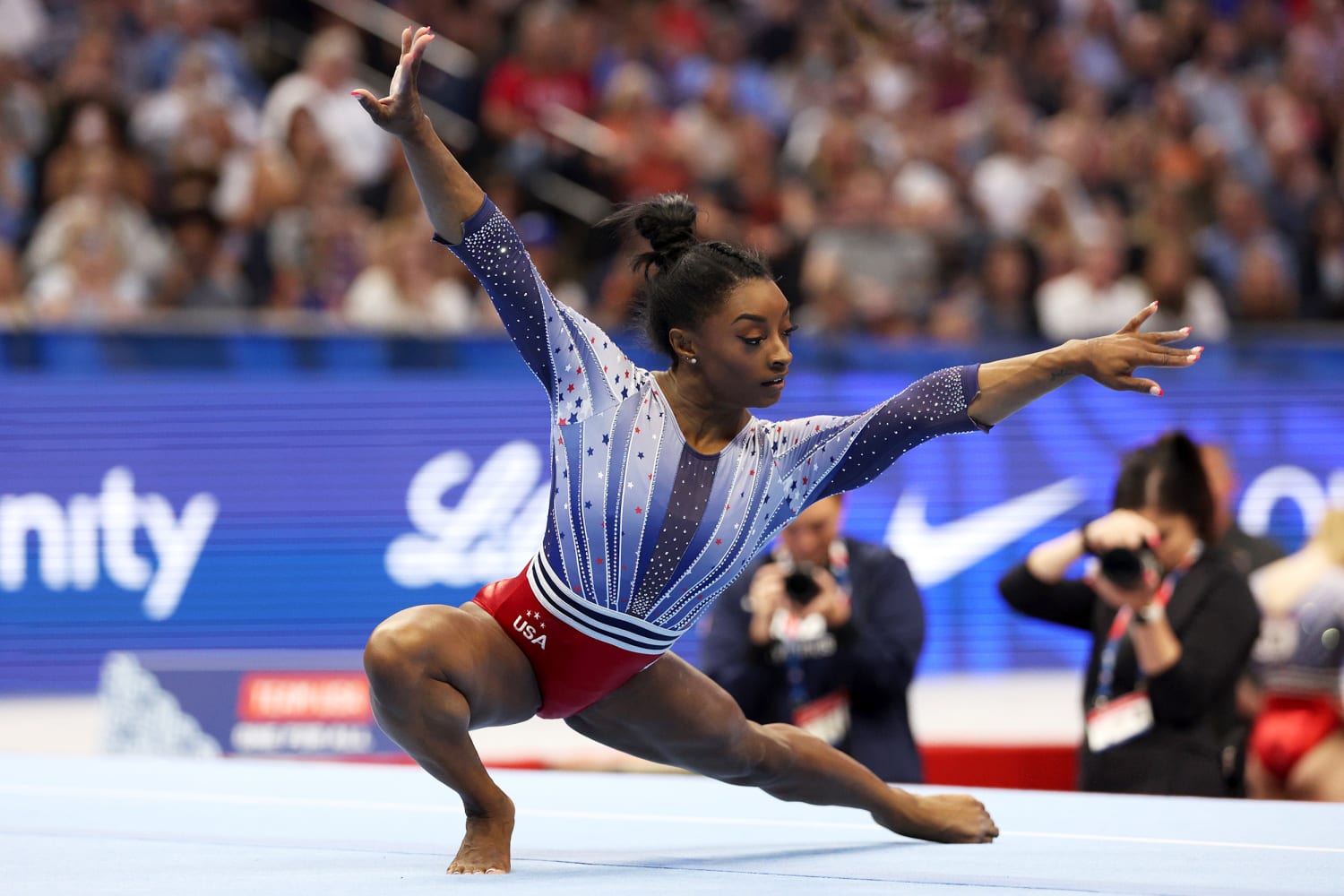SIMONE BILES: Rising review – the greatest gymnast of all time… Details
If you watched Simone Biles: Rising only to marvel at what the most decorated gymnast in history can do, that would be a couple of hours well spent. It is astonishing to see her moving through the air, rapidly contorting her body with such astounding motion that gymnastics is still having to adjust its parameters to accommodate her abilities. Moves have been named after Biles, some of which have been completed only by her.
But the Biles story is much more dramatic than her legendary physical prowess. This four-part documentary series, the first half of which arrives just before she returns to the Olympic stage in Paris, has more twists than even her most intricate routines.
It has been almost four years since Biles shocked the sporting world by withdrawing from the 2020 Olympics in Tokyo, partway through the competition. She had been the face of the games, expected to break records, take multiple golds and cement her status as the greatest of all time. But Tokyo, which took place amid the restrictions and isolation of the Covid pandemic, did not go to plan.
“Your body can only function for so long before your fuses blow out,” says Biles today. She came down with a bad case of “the twisties”, in which gymnasts lose their sense of place and become disoriented, mid-air. “Most of the time, it’s unrelated to gymnastics,” notes one of her coaches, Laurent Landi, drily.
Simone Biles: Rising – the series is named after a tattoo on Biles’ collarbone, which is taken from Maya Angelou – balances a more general portrait of her life and career with questions about the demands of elite sport, particularly in a world of constant inexpert scrutiny via social media.
The film-makers have been given extraordinary access to the gymnast, her family and her home life. We meet everyone from her husband, the NFL player Jonathan Owens, to her mother, Nellie. We see her family gathered in front of the TV to watch her at the 2020 Olympics and see the moment that they realise things are falling apart. In the immediate aftermath of Tokyo, Biles films herself talking about shame and confusion. She admits that she “wanted to quit, like, 500,000 times”. She was not sure that she would ever be back.
There is a sense that, when it comes to public-facing figures, we can pay lip service to concerns over mental health while remaining irritated by the perceived “inconveniences” of non-visible health struggles. There is some score-settling on that front here. The pundits who rounded on her for “quitting” and “letting her team down” are broadcast in all their insensitivities. Biles reads accusatory tweets about her and the camera lingers on her face as she reacts. She hears the mean comments much more loudly than the supportive ones, she admits. A journalist from L’Equipe sums it up with a Gallic shrug: “How is it possible to deal with people who are so silly?” Much like Netflix’s 2021 documentary about the tennis player Naomi Osaka, this humanises the athlete and gently pleads for compassion.



